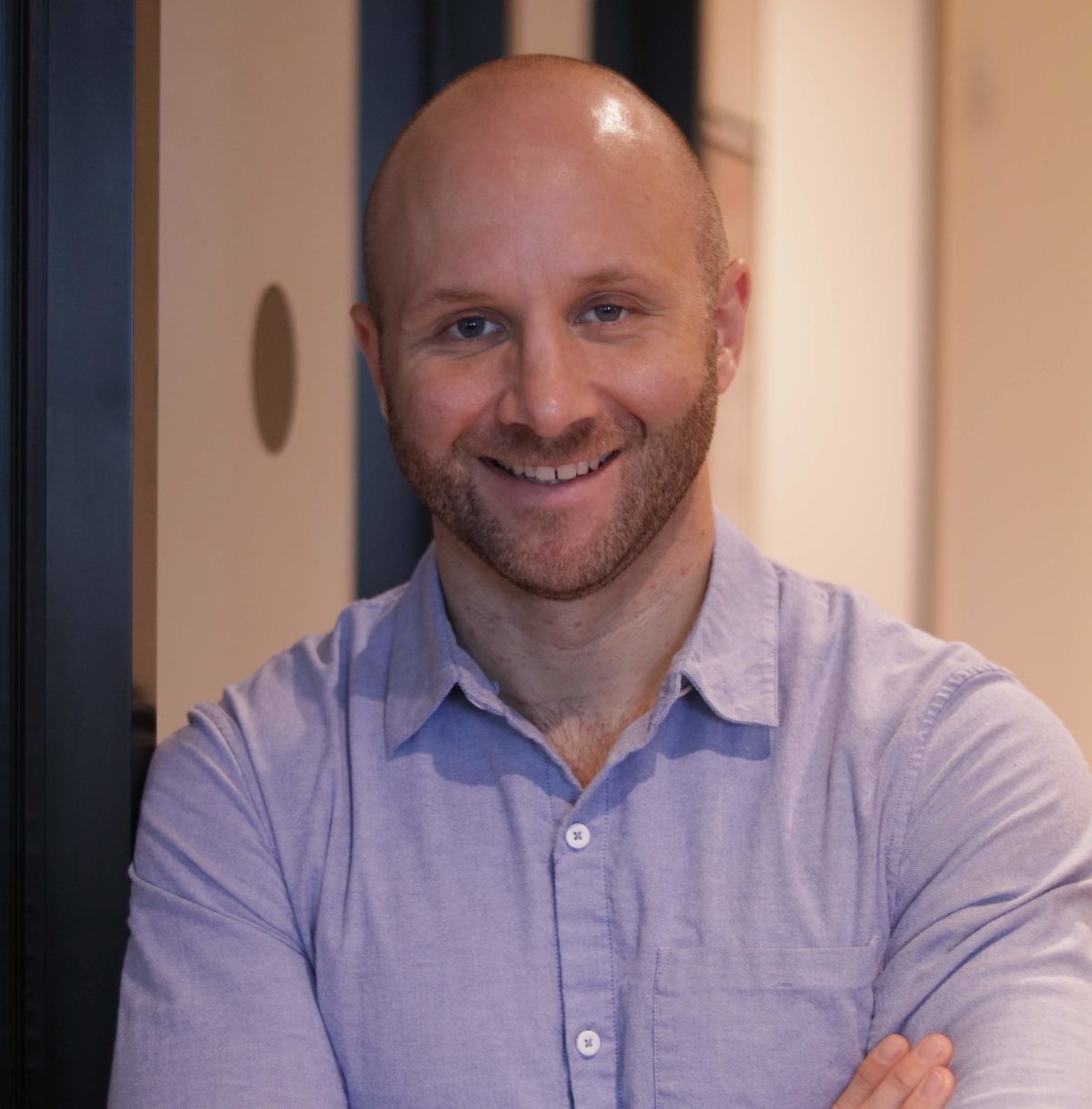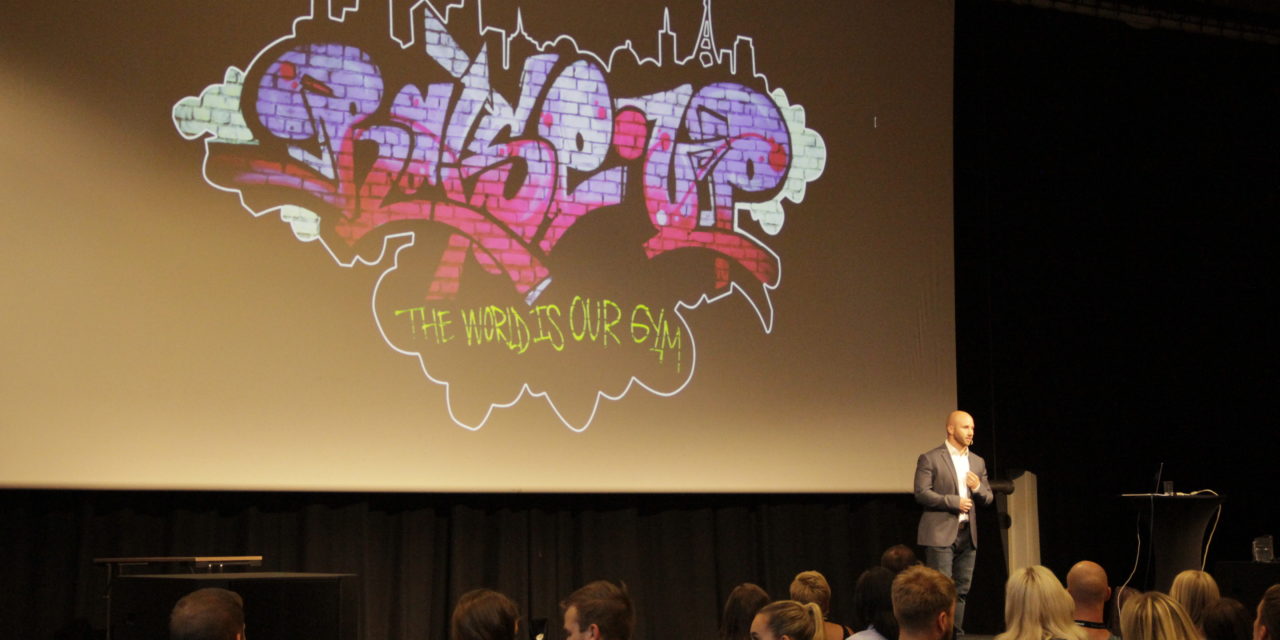Last year, I had a moment of clarity.
I’d been resisting the public assumption that I was just “the fitness guy” because I made a movie about calisthenics and taught classes at Syncstudio. I knew I had more to offer in terms of the content I wanted to create and the mission I wanted to serve.
But after spending years chasing projects down paths my heart didn’t belong on, I took a long hard look at myself and what was important to me.
It wasn’t just spreading the love of fitness and wellness that attracted me. I had been making films about healthcare, the environment, and social movements. The books I read were all about vulnerability and shame, imposter syndrome and overcoming obstacles.
Then I looked at where I come from — who I come from.
My family had a strong history of addiction, heart disease, diabetes and cancer. In fact, much of my community in eastern North Carolina also suffered from chronic conditions, obesity, poverty and struggled with their overall well-being.
It became obvious to me why I cared about health, wellness, well-being, and overall happiness. And in that moment, my mission emerged with complete clarity: to make the world happier and healthier by sharing inspirational stories of change.
The beautiful thing about finding your “why,” is that you can apply it to any “what” or “how” you choose to. Let me explain.
As Simon Sinek says in his book Start with Why:
“If Apple was like everyone else a marketing message might be: ‘We make great computers. They’re user friendly. Want to buy one?’ … Here’s how Apple actually communicates: everything we do, we believe in challenging the status quo, we believe in thinking differently. The way we challenge the status quo is by making our products beautifully designed, simple to use, and user friendly. We just happen to make great computers. Want to buy one?”
This is why when Apply creates a new product — like an mp3 player, or a phone, or whatever — people will still purchase it. On the other hand, when Dell tries to create a smartphone, it doesn’t have the same effect — because they market themselves as “a computer company.”
So, now that my mission is clear to me, it is the driving force of anything I do: films, writing, live events, speaking engagements, whatever. They all serve the mission to make people happier and healthier.
A few months ago, a wonderful new opportunity arose to serve my mission.
I’d been a Lululemon ambassador for the past two years (as “the fitness guy”). But my friend and assistant store manager Sareena knew I was also in the storytelling space. When she wanted the Durham store to create a local speaker series, she came to me with the idea.
I said “Yes!” before she could even finish her sentence.
Over the next few months, we created a six-part monthly storytelling night, hosted by WeWork in Durham, that focuses on creating community conversations on the “pillars of health” — mental, physical, financial, environmental, relationship, and community health.
Each story night, we will host four storytellers to share a story about the night’s topic. I know from my work how effective storytelling is in connecting people (you’re talking with them, instead of at them), so the goal is for the people sharing stories to open up, be vulnerable, and set the standard of a safe space where we can all share or ask questions.
That will be followed by an open dialogue with the rest of the audience.
Many times, people are scared to ask questions or share — either because they feel embarrassed or because there is stigma attached to the issue. We are seeking to break that down and have an open, honest conversation with our community.
The first night, next Wednesday (May 1st) is on the paramount issue of mental health.
Obviously all of these “pillars” are multi-layered and our experiences with them vary greatly depending on our backgrounds and perspectives, but our goal is just to get to conversation started.
Too many people talk about how we need to talk about these things but leave the work for someone else.
I’m not the one who’s going to change things; it’s going to take all of us. But if I can get people in a room to talk about the hard issues and possibly help one another, then I am going to do everything in my power to make that happen.
Because as my hero Brene Brown says, “Here’s the bottom line with shame: the less you talk about it, the more you got it. Shame needs three things to grow exponentially in our lives: secrecy, silence, and judgment…. Shame depends on me buying into the belief that I’m alone. But shame cannot survive being spoken. It cannot survive empathy.”
So if you’re someone who struggles with anxiety, stress, burnout, depression, addiction, or mental illness (which, hint: is ALL of us in some capacity), then please come out, open up, speak your truth, and feel the power of empathy and community… in health and happiness.
 Rain Bennett is a two-time Emmy-nominated filmmaker, writer, and competitive storyteller with over a decade of experience producing documentary films that focus on health and wellness. His mission is simple: to make the world happier and healthier by sharing stories of change.
Rain Bennett is a two-time Emmy-nominated filmmaker, writer, and competitive storyteller with over a decade of experience producing documentary films that focus on health and wellness. His mission is simple: to make the world happier and healthier by sharing stories of change.
You can read the rest of “Right as Rain” here, and check back every Wednesday on Chapelboro for a new column!


